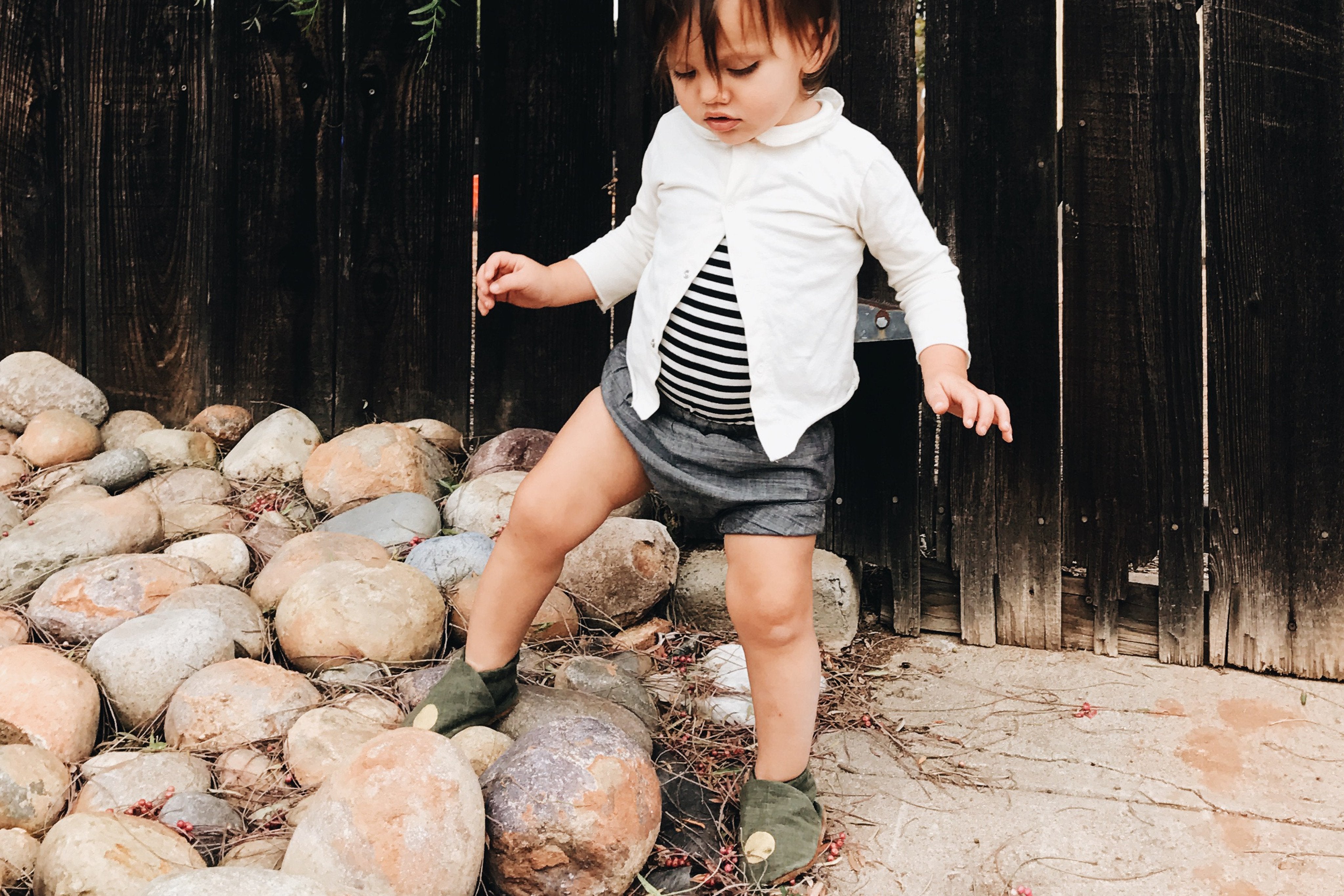

Read more
A make-ahead friendly bite rich in protein, fiber, and ‘good’ fats, these balanced donuts come together in seconds, and live in our fridge to grab and dice-up as Poe’s appetite dictates.
Read more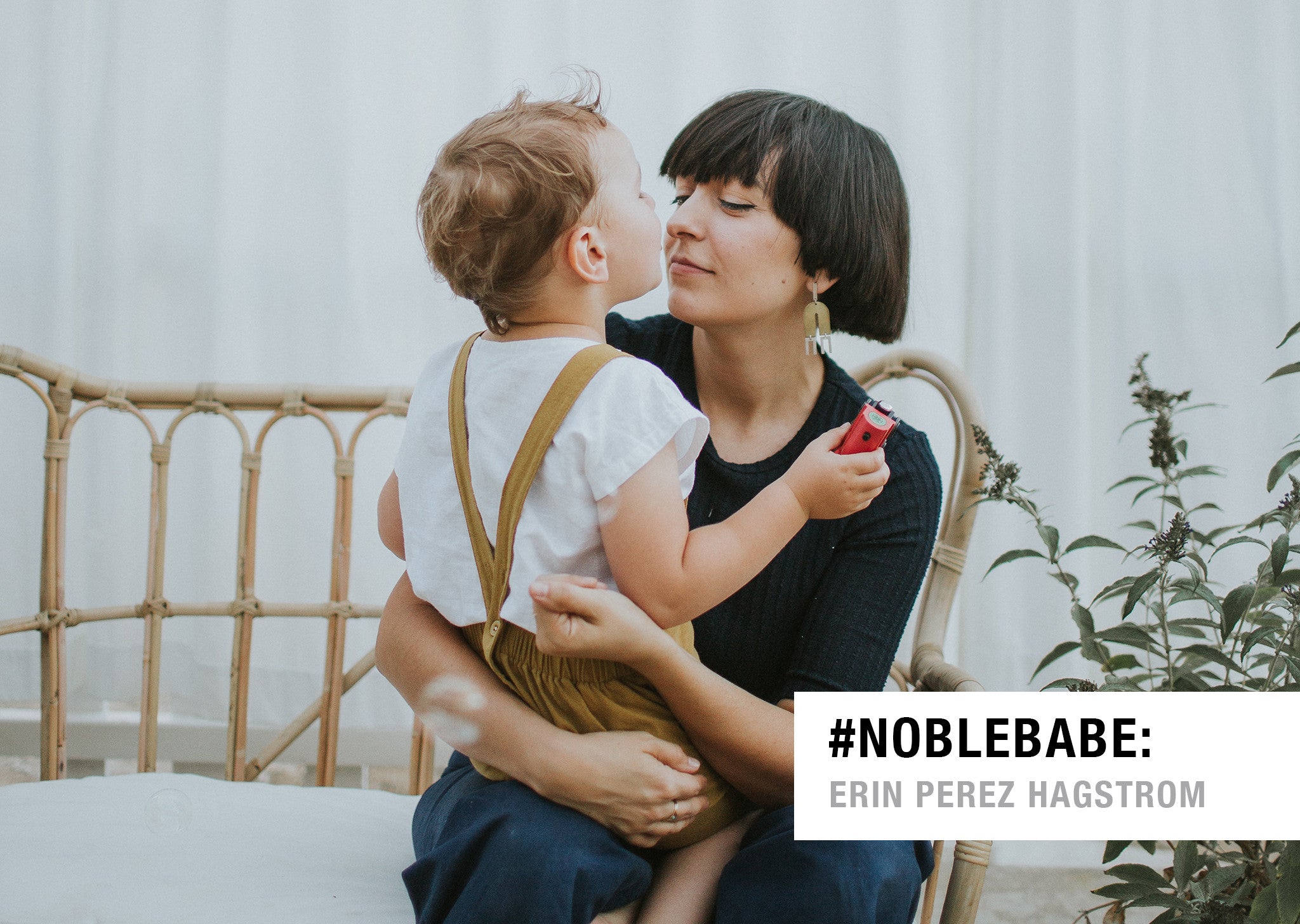
Noble Babe: Erin Perez Hagstrom
From the moment we met Erin Perez Hagstrom of the blog calivintage we knew we had found one of our people. Not only does Erin rock the perfect mix of vintage and sustainable clothing, but she car...
Read more
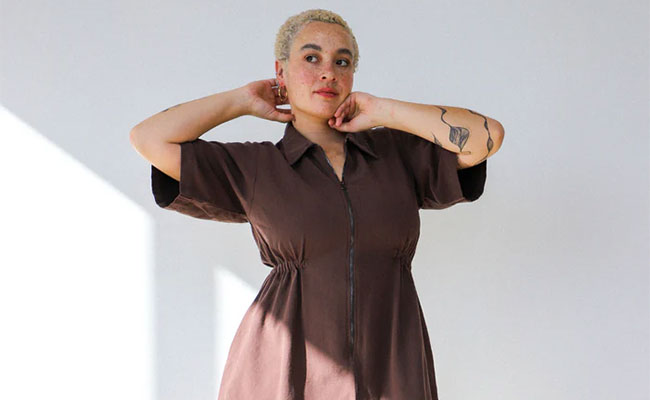
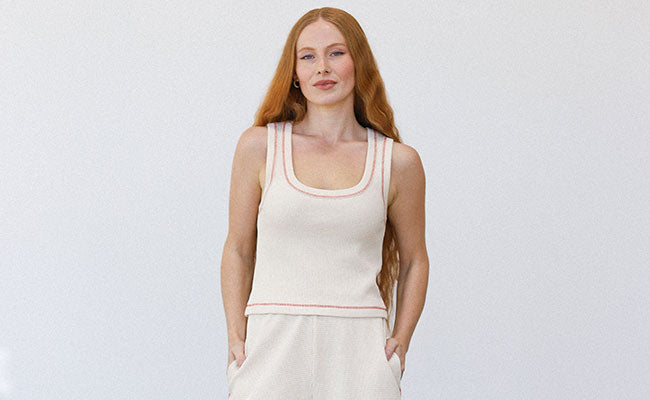
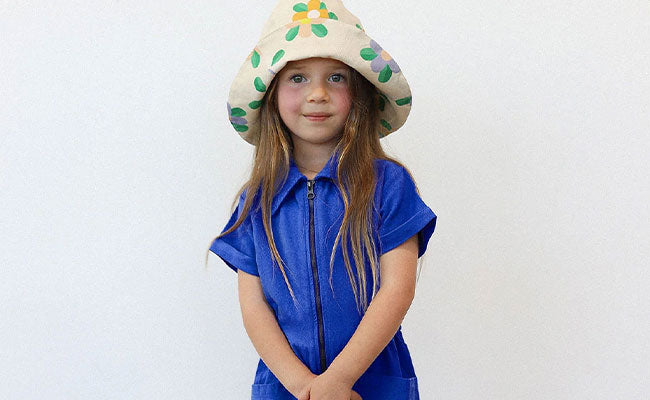
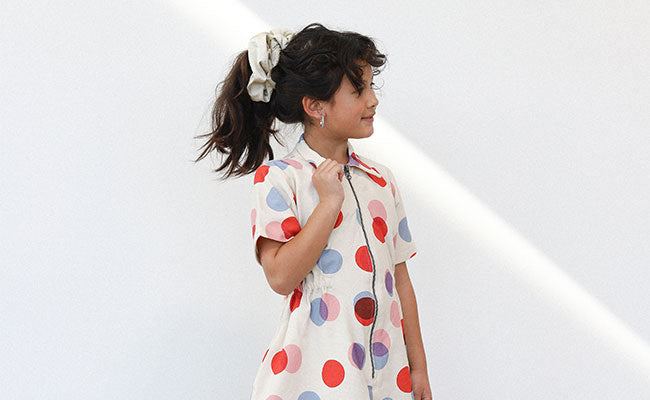
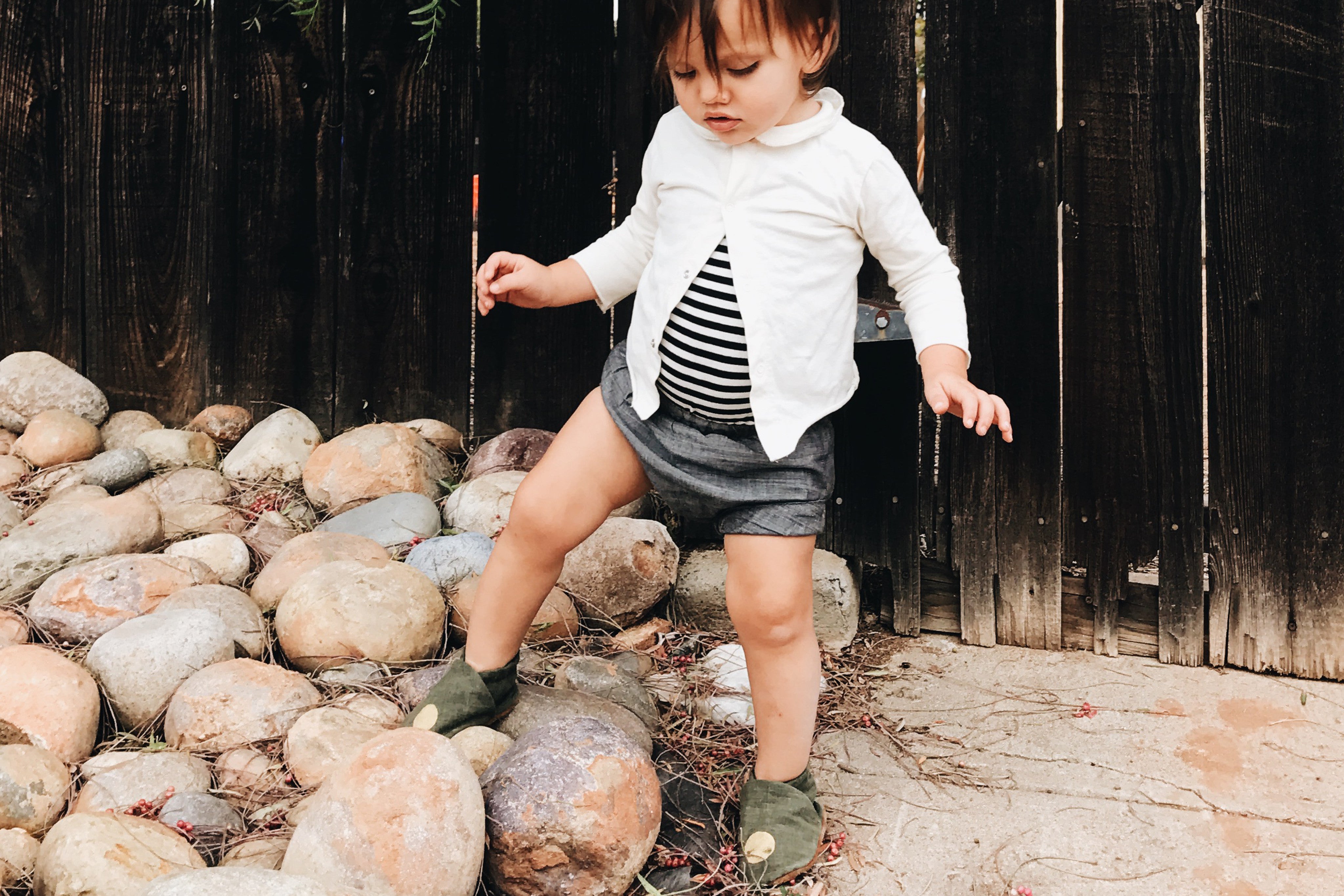 When it comes to purchasing kicks for your babe, little miniature versions of mom and dad’s hard sole shoes seem like the obvious solution(think mini converse or mary janes). Not only are they cute, but they seem like they would protect your baby's sensitive feet, when in reality they could do quite the opposite. Doctors tend to agree that with the rate your baby's feet are growing and developing, soft sole shoes are a much better solution for the first few years of your baby’s life. Now don’t let us burst your baby footwear dreams forever! We aren’t anti-hard soled shoes, we just want you to be aware of the benefits of having your little wear no shoes or soft soled shoes for the majority of the time they are learning to walk and a few years after. Below are 4 benefits of babes rocking soft soled shoes.
When it comes to purchasing kicks for your babe, little miniature versions of mom and dad’s hard sole shoes seem like the obvious solution(think mini converse or mary janes). Not only are they cute, but they seem like they would protect your baby's sensitive feet, when in reality they could do quite the opposite. Doctors tend to agree that with the rate your baby's feet are growing and developing, soft sole shoes are a much better solution for the first few years of your baby’s life. Now don’t let us burst your baby footwear dreams forever! We aren’t anti-hard soled shoes, we just want you to be aware of the benefits of having your little wear no shoes or soft soled shoes for the majority of the time they are learning to walk and a few years after. Below are 4 benefits of babes rocking soft soled shoes.
Leave a comment
This site is protected by hCaptcha and the hCaptcha Privacy Policy and Terms of Service apply.